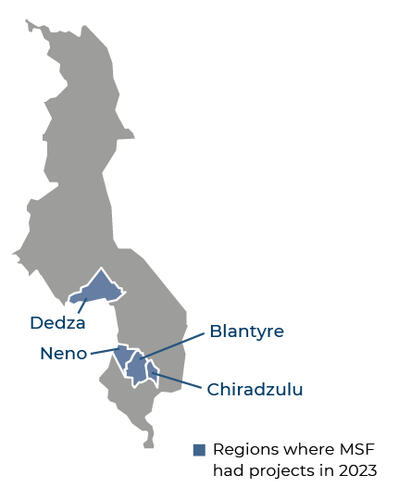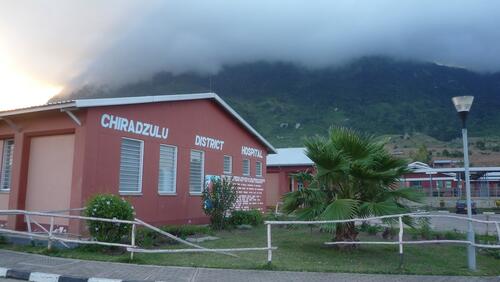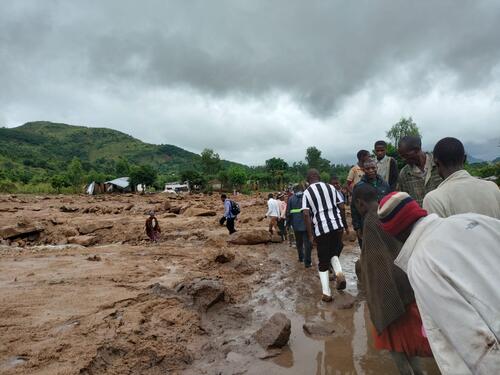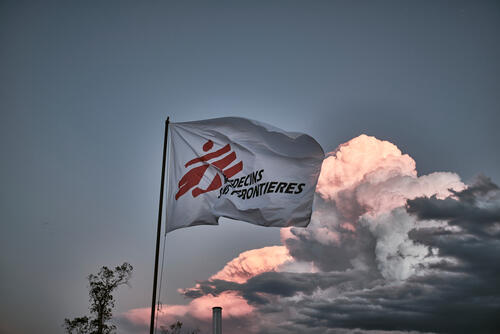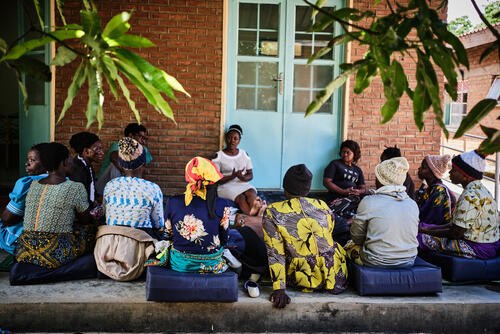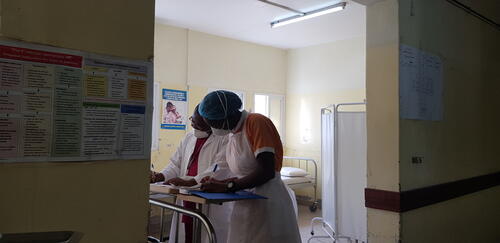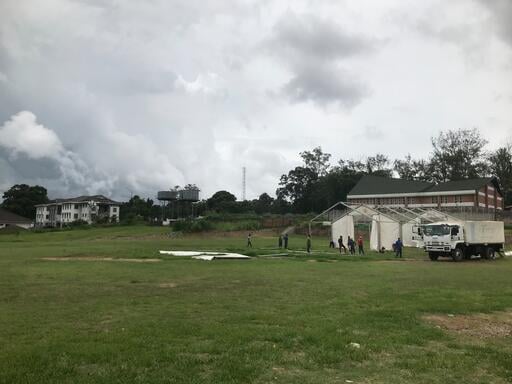In Malawi’s second-largest city, Blantyre, and the surrounding district, we have worked closely with the Malawian health authorities to implement a comprehensive programme that comprises prevention, screening, diagnosis and treatment, as well as palliative care, for cervical cancer. The disease accounts for 40 per cent of all cancers among women in Malawi and kills over 2,000 each year.
Based in Queen Elizabeth Central hospital in Blantyre, our services include human papillomavirus vaccinations, outpatient treatment for pre-cancerous and cancerous lesions, surgery, chemotherapy, and home-based palliative care for patients in the advanced stages of the disease. Patient-centred activities, such as mental health support and education sessions, are also part of our programme. In addition, MSF refers some patients to Kenya for radiotherapy, as this treatment is not yet available in Malawi.
The cervical cancer screening units are integrated in 10 health centres in Blantyre and Chiradzulu districts. A mobile screening team also works in Chiradzulu.
Alongside our specialist cervical cancer programme, we support key medical services for sex workers, such as sexual reproductive healthcare, screening services, and HIV prevention at two community-based organisations in Dedza and Zalewa.
In 2023, after over 20 years of collaboration with MSF, Chiradzulu district health authorities and their partners took over our HIV/AIDS activities, ensuring continuity of care for patients in the district.
During the year, MSF responded to a massive cholera outbreak by setting up cholera treatment units, treating severely and moderately ill patients, supporting oral cholera vaccination campaigns, and conducting water, sanitation and hygiene activities.
From March, in the wake of Cyclone Freddy, our teams rehabilitated water networks and sanitation facilities, and distributed relief items such as blankets, firewood and cooking equipment. We also provided outpatient and maternity consultations for people affected by the disaster.
*BMC Public Health, https://bmcpublichealth.biomedcentral.com/articles/10.1186/s12889-022-12547-9
